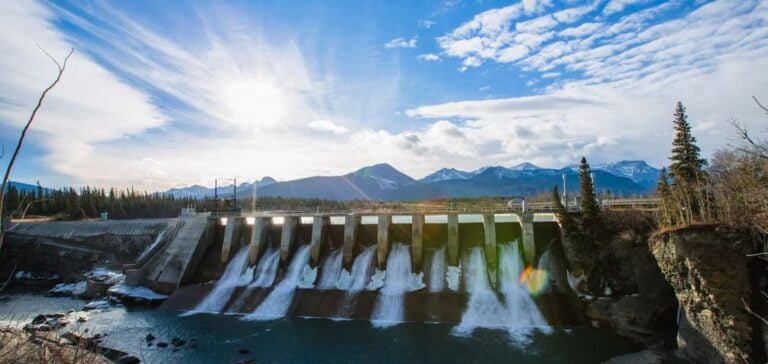In 2023, Canada recorded a 3.9% drop in electricity production, the lowest in years, despite the addition of new generating capacity. According to Statistics Canada, this drop is mainly due to unfavorable weather conditions, exacerbated by a record summer and unusually low precipitation.
Deep regional impact
The hydro-dependent provinces of Manitoba, British Columbia and Quebec were hard hit, having to increase their use of fossil fuels or import energy. Quebec has even reduced its electricity exports.
Situation in the United States
In the United States, theEIA reports an 11% reduction in hydroelectric production in 2023, the lowest in 22 years. According to the federal agency, “the decline followed modest precipitation levels the previous year and a spring heat wave that melted snow cover quickly enough to deplete the water supply needed for generation during the summer.”
Consequences and reactions
This downward trend could jeopardize plans to use hydropower to meet carbon emission targets. Hydro-Québec, for example, plans to develop between 3,800 and 4,200 megawatts of new hydroelectric generation, but these projects could be threatened by a drier climate.
Global implications and reflections
“Given the scale of the challenge presented by reducing emissions and the fact that existing non-emitting sources such as hydro may become less abundant, society needs to recognize that there will be less energy available in the future,” said David Hughes, energy analyst at The Tyee.
The water crisis in North America highlights the urgent need to adapt energy strategies to the realities of climate change, and to seek sustainable solutions to maintain energy security.






















